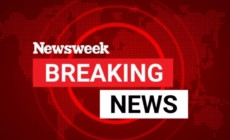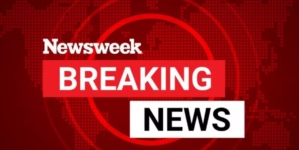-
Sean ‘Diddy’ Combs Will Be Sentenced in October - 6 mins ago
-
Commentary: In an L.A. park, Trump unleashed his latest show of farce: The Battle of the Photo Op - 25 mins ago
-
Phillies Mock Trade Deals Top Pitching Prospect for Pair of Marlins Relievers - 32 mins ago
-
I.C.C. Seeks Arrests of Taliban Leaders Over Persecution of Women - 50 mins ago
-
Woman’s arm is severed in Southern California train collision - about 1 hour ago
-
Small Plane Crash in North Carolina Kills Buchanan Family of Four - about 1 hour ago
-
Liberal Fund-Raising Drive Seeks $250 Million to Aid Pushback Against Trump - 2 hours ago
-
Chris Pratt Returns to Fan-Favorite Animated Role - 2 hours ago
-
Dan Osborn’s Chances of Beating Republican Pete Ricketts in Nebraska - 2 hours ago
-
The French Seaside Factory Trying to Break China’s Chokehold on Rare Earths - 2 hours ago
What Trump’s Executive Order Means for Medicare, Medicaid
After President Donald Trump issued an executive order to dramatically lower prescription drug prices in the United States, recipients on Medicare and Medicaid are wondering how the new prices could impact them.
Why It Matters
Nearly 70 million Americans rely on Medicare, while Medicaid serves nearly 80 million low-income or disabled recipients. While prescription drug prices under Medicare and Medicaid can vary, Trump’s new executive order aims to lower prices for all patients.
The order is based on a “most favored nation” pricing model, similar to a policy Trump pushed in his first administration but ultimately failed following legal challenges.
What To Know
Trump signed the executive order Monday to lower prescription drug prices. Currently, Americans pay significantly more for prescription drugs than consumers in other countries.
Prices for brand-name drugs in the U.S. are, on average, three times higher, and drugmakers often base their business strategies around the U.S. market, where they earn most of their global profits.
Trump called his executive order “one of the most consequential Executive Orders in our Country’s history,” and said it would reduce drug prices “almost immediately, by 30% to 80%” on Truth Social.
Under the order, drugmakers have a 30-day deadline to meet specific price targets. The government will take further action if the companies do not make “significant progress” within six months.

Anna Moneymaker/Getty Images
The new executive order is likely to face legal pushback. The pharmaceutical industry has long criticized pricing rules, saying they can dramatically cut into revenue and reduce incentives for new drug development.
Michael Ryan, a finance expert and the founder of MichaelRyanMoney.com, said Medicare recipients could see savings for specialty drugs under the order, but due to legal hurdles, it’s unlikely to actually lower drug costs.
“For Medicare, any potential savings would mainly affect specialty drugs. Think cancer treatments and other infusions. It’s not addressing everyday prescriptions most seniors pick up at their pharmacy. And for Medicaid recipients, the details are even vaguer,” Ryan told Newsweek.
“Bottom line? This is more political promise than practical policy at this point. If you’re on Medicare or Medicaid and struggling with drug costs, I wouldn’t count on relief coming from this particular order.”
What People Are Saying
Alex Schriver, a spokesperson for PhRMA, the industry’s top lobbying group, said in a statement: “Government price setting in any form is bad for American patients. Policymakers should focus on fixing the flaws in the U.S. system, not importing failed policies from abroad.”
Oregon Senator Ron Wyden, a Democrat, said in a statement: “Trump spent his entire first term blathering about Big Pharma, but in the end he always backed down instead of fighting for American seniors and families…If Trump was serious about lowering drug prices, he would work with Congress to strengthen Medicare drug price negotiations, not just sign a piece of paper.”
Alex Beene, a financial literacy instructor for the University of Tennessee at Martin, told Newsweek: “The new administration is going back to what was attempted to be implemented during the first Trump presidential term by slashing drug prices for Medicare and Medicaid recipients. The drop in price would be modeled after a ‘favored nations’ clause, which would basically cap drug prices at what other developed countries pay for the same item.
“While it comes as welcome news to Americans who benefit from these programs, it’s also fair to note during the first Trump term, a federal judge ruled against the implementation and put plans on ice for the reduction. It remains to be seen if this plan will face the same legal opposition.”
Kevin Thompson, the CEO of 9i Capital Group and the host of the 9innings podcast, told Newsweek: “I’d say yes, it’s likely to face the same legal challenges as before. Courts blocked the original version in 2020 because it bypassed the standard rulemaking process, which requires congressional approval for significant pricing reforms like this. I’d expect a similar outcome this time unless they find a way to address those procedural issues.”
Drew Powers, the founder of Illinois-based Powers Financial Group, told Newsweek: “The pharmaceutical lobby is big and powerful. They have been able to sway both Democratic and Republican leadership, and they have had success in the past in stopping these efforts in court.”
Michael Ryan, a finance expert and the founder of MichaelRyanMoney.com, told Newsweek: “Don’t expect cheaper prescriptions anytime soon. If ever. This executive order is more of a ‘we’ll see’ than an immediate help.”
What Happens Next
Under the executive order, drugmakers have a 30-day deadline to meet specific price targets. The government will take further action if the companies do not make “significant progress” within six months.
However, experts remain concerned that the order will be blocked in the courts.
“It’s déjà vu. Trump tried something similar back in 2020, but it got tied up in court battles and never actually happened. This version is a bit broader, but faces all the same hurdles,” Ryan said.
“The timeline here is really important. Even in the best-case scenario, we’re talking months before anyone might see changes, if it is ever implemented. The pharma industry is already calling it a ‘bad deal.’ They’ve beaten similar efforts before, and they’ve got deep pockets to try again.”
Source link

















